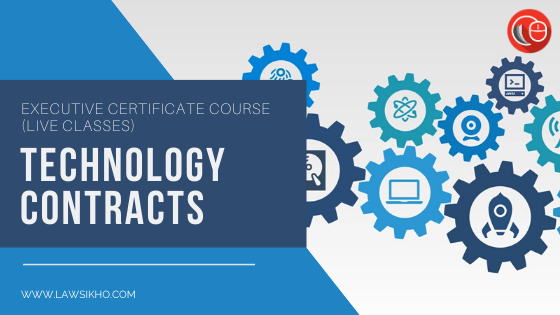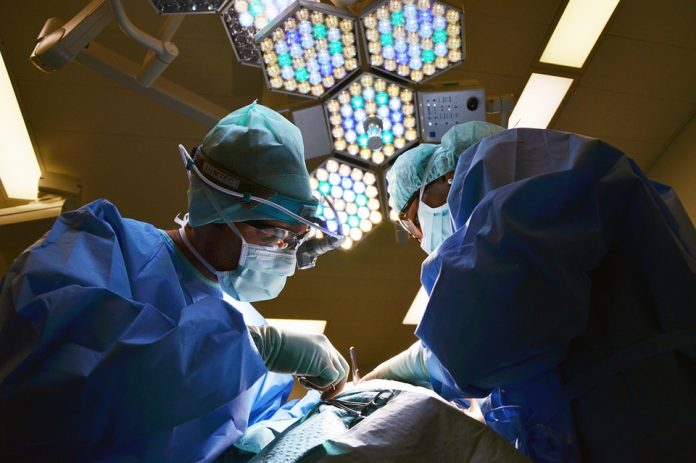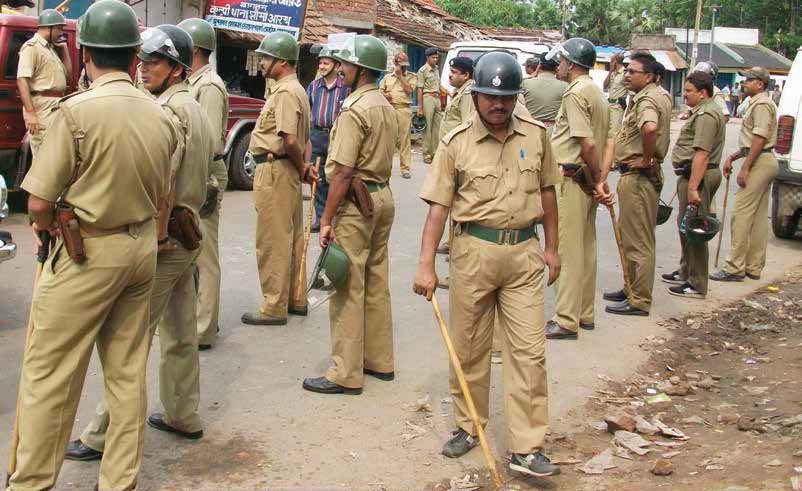This article is written by Abhinav Anand, currently pursuing B.A. LL.B(Hons.) from DSNLU, Visakhapatnam. In this article, he explains the procedure which is to be followed for a victim’s medical examination under the CrPC.
Table of Contents
Introduction
With the advent of different techniques in the criminal justice system, the medical examination has become an intrinsic part of the investigation if the circumstance demands so. The medical examination concept has evolved all over the world considering the importance of the evidence collected after the examination of the accused or victim.
The medical examination of parties involved in the crime is made victim-friendly in India. The concerned authorities involved in the process are mandatorily directed to follow the rule of law. The victims right to privacy is protected in any case. The Supreme Court in many of its judgments has pronounced the need to protect the basic fundamental rights of the citizen while doing his/her medical examination.
Need for Medical Examination
The medical examination is done to know the true facts about the incident that happened with the victim. It provides a substantial piece of evidence to the police officers which helps them to expedite the process of investigation. The fact findings are corroborated with the help of the medical examination. It helps to reach a conclusion expeditely.
It has improved the quality of investigation in the countries where the qualification of the concerned person involved in the process is up to the mark. It leads to corroboration which results in the expeditious disposition of the cases.
Procedure for Medical Examination
Section 53 of CrPC provides for the procedure of medical examination of the accused.
- Whenever the accused has committed an act or is alleged to have committed an act, the police has reasonable grounds to believe that the medical examination of the accused person can help the police to get evidence of the commission of the offence, then they can request a registered medical practitioner for the examination of that person. The police officer directing the medical practitioner should be sub-inspector or above the rank of the Sub Inspector.
- When the accused is female then she can be examined under the supervision of the female medical practitioner.
Section 53A of the CrPC provides for the procedure of examining the accused of rape cases:
- Whenever a person is accused of committing rape or attempt to commit rape and there is reasonable ground to the belief that the examination of the accused can afford evidence for the commission of the offence, it shall be lawful for the registered medical practitioner of the government hospital or any local authority, if not present, then within the radius of the 16 km from the place of occurrence of the crime, the examination can be done with any registered doctor on the request made by the police officer, not below the rank of sub-inspector.
- The registered medical practitioner shall conduct the examination without any delay and prepare a report of such a person by providing the following information:
- The name and person of the accused and the name of the person whom he was brought by,
- Age of the accused,
- Injury marks,
- The description of the material taken from the person for DNA profiling,
- Other information in particular.
- The report shall precisely state the reason for each conclusion arrived at.
- The date of commencement and completion has to be mentioned in the report.
- The registered medical practitioner shall without any delay send the report to the police officer and the police officer will send the report to the magistrate under Section 173 of CrPC.
Procedure of the Medical Examination of a Rape Victim
Section 164 of CrPC provides for the procedure of examination of the rape victims:
- When during the stage of investigation of the offence of rape or attempt to rape, it is proposed the victim to get medically examined with a registered medical practitioner of government or any local authority, if not present, then any registered medical practitioner with the consent of the woman or the person competent to give consent on her behalf. The woman should be sent to the medical practitioner for the examination within 24hrs of receiving the information of commission of the offence.
- The registered medical practitioner should prepare the report without any delay with the following information:
- The name and address of the victim and the person who brought her,
- The age of the victim,
- The description of the material taken from the person for DNA profiling,
- The general mental condition of the woman,
- Other material particular in detail as well,
- The report shall precisely provide the reasoning of every conclusion reached,
- The report shall specifically mention the consent of the woman or the competent person on her behalf.
- The report shall mention the exact time and commencement of the examination.
- The registered medical practitioner should immediately forward the report to the investigating officer and the investigating officer should immediately send it to the magistrate under Section 173.
- Nothing in this article shall be construed as rendering lawful without the consent of the woman and any competent person on her behalf.
Section 27(2) of the POCSO Act, provides for the provision for the medical examination. In the case of a female child, the female doctor is entitled to do her medical examination.
Particulars in the Report
The Medical examination report shall consist of the following things:
- The name and address of the victim.
- The age of the victim.
- The description of the material taken from the person DNA profiling.
- The general mental condition of the victim.
- The report shall also consist of the consent of the victim or the competent person on her behalf.
- The report shall also precisely mention the reasoning of the conclusion reached.
Consent of the victim
The medical examination of any woman who is the victim of sexual violence is done only when that woman gives the consent. Section 164A(7) bars the court and police to do the medical examination of the victim without the consent of the victim. The consent can be given by the victim or the person competent on her behalf to give the consent. The following points must be considered while seeking consent:
- If the victim is not in the condition to give consent, then the parents of the victim can give the consent.
- If the victim is a child below 12 years and there is no one on her behalf to give the consent, then the senior doctor from the panel of hospital authorities can give the consent. The decision will be done in the best interest of the child.
- As per the provision of Section 89 and 90 of the IPC, the survivor can give consent for the medical examination if her age is more than 12 years.
- As per Section 92 of IPC, a doctor can conduct the lifesaving procedure of the patient without his/her consent.
- If the Parents of the child is against his welfare then the Child Welfare Committee should be informed who has the responsibility to take care of the Child under Juvenile Justice Act, 2015.
- For conducting the medical examination of any person who is mentally challenged, informed consent of any of the persons can be taken who will act in the best interest of him.
- Jurisdictional Court,
- Parents or Local Guardian,
- Doctors from the hospital,
- Child welfare committee in case of a child.
- For conducting the medical examination of a person having hearing and speech impaired survivors, the informed consent can be obtained using an interpreter.
- The consent form should be signed by the survivor, witness and examining doctor.

Landmark Judgments
Deoman Shamji Patil vs. the State
In this case, the petitioner was the accused. The facts of the case were that one day the police officer received the information that one person is misbehaving and creating mischief on the public street under the influence of alcohol. In pursuance of the information thereof, the concerned police official has formed a team of 5 to 6 constables and reached the spot, after reaching the spot, they found the person was under the influence of alcohol and they decided to take him to the nearby doctor to get him medically examined.
Meanwhile, when the police officials tried to take him to the doctor, he refused and also a scuffle happened between him and a police constable, to whom he had punched during the scuffle. The accused was being dragged to the dispensary for the medical examination, he somehow, in between, managed to ran away from the spot.
After some days considering the gravity of his act, he surrendered to the police. He was convicted under Section 353 of the IPC for deterring the public servant from discharging his duty.
The conviction turned into an appeal and the court has relied on the technical interpretation of Section 99(1)of IPC wherein the accused was denied the right to exercise private defence. The order of taking the accused to the medical dispensary was given by the constable, who is not allowed to issue such an order.
The court held that the accused is not guilty under Section 352 and 354 of the IPC and set aside the order of the trial court.
Ram Swaroop Pathak vs. The State of Madhya Pradesh
In this case, the prosecutrix was a student of class 8. The appellant was a teacher of English. In the absence of the guardian in the home, the appellant came to the house of the prosecutrix and asked her to take the money for the milk. Afterwards, she was taken to a secluded place that is a rented room and she was raped by the teacher. The teacher threatened him to not disclose the fact to anyone otherwise she has to face the consequences.
In the judgment, the lower court held the appellant liable and sent him to jail for rigorous imprisonment of 10 years in the first count and rigorous imprisonment of 3 years in the last count.
The appellant filed an appeal before the high court wherein court allowed him the bail on the following grounds:
- In the present case, there was a delay in the medical examination of two days.
- In addition to that, the prosecutrix story is not supported by her mother, her mother stated that she told her that the appellant just tried to outrage her modesty.
- In addition to that, the evidence that is relied upon during the medical examination is the presence of semen, the presence of semen is not on the slides of the body of the prosecutrix.
Based on the above finding, the court allowed the appeal partially and upheld the conviction under Section 506 of the IPC and sent him on rigorous imprisonment for up to 3 years.
In 2004, Mr Selvi and others filed the first batch of criminal appeals followed by subsequent appeals. In the first instances wherein it was stated that the extraction of information by the investigating agencies will help the prevention of crime in future. It has also been urged that administering such techniques will help in strengthening the facts and will also lead to an increase in the rate of conviction and acquittal.
This case has thrown abundant light on determining guilt based on technical evidence. The following technical evidence is discussed in this case:
- Narco Analysis Test: in this test a hypnotic drug is given to the accused and when he reaches the subconscious then the questions are posed to him for the answer. The success rate is not higher. Furthermore, the Supreme Court of Canada has said that the statement made in a hypnotic state is not voluntary and cannot be admitted as evidence.
- Brain Electrical Activation Profile: It is done to know whether the individual is familiar with certain information by way of measuring activity that is triggered by selected exposure to stimuli.
The Court has stated the involuntary administration of narco analysis is cruel, degrading and inhuman. The evidence collected by the narco analysis test is inadmissible if done without the consent of the accused.
The court also emphasized the limitation of the evidence that is collected with the above-mentioned techniques. The court interpreted Section 20(3) of the constitution which speaks about self-incrimination.
The Court held that the collection of evidence by means of medical examination and any other techniques such as DNA profiling, Brain Mapping, Polygraph test should be limited to the extent of incriminating the accused. Furthermore, the right to privacy of the accused should not be infringed.
Conclusion
The procedure of the victim’s medical examination should be changed according to the current situation. The procedure envisages about the medical practitioner presence in the vicinity of the place of commission of offence but if the offence is committed in the remote area where there is no access to medical facilities, then what are the possibilities that can be exercised should also be looked into. The improvement should be done in the government hospital and it should be equipped with the modern machines to address the concern of recent times.
LawSikho has created a telegram group for exchanging legal knowledge, referrals and various opportunities. You can click on this link and join:
https://t.me/joinchat/J_0YrBa4IBSHdpuTfQO_sA
Follow us on Instagram and subscribe to our YouTube channel for more amazing legal content.
 Serato DJ Crack 2025Serato DJ PRO Crack
Serato DJ Crack 2025Serato DJ PRO Crack










 Allow notifications
Allow notifications


